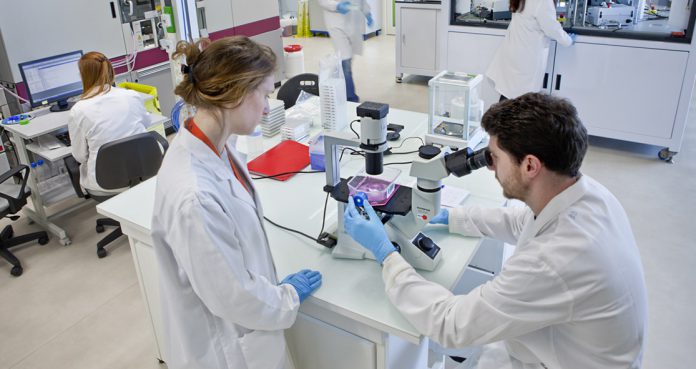American and British researchers have teamed up to find out the earliest indications of cancer in order to detect as well as treat the condition even before it emerges in the body. They aim to give birth to cancer in the lab to notice exactly how it looks like from day one.
The researchers are working together to share their plans, ideas, technology and experience in the field. This research is one of the priorities of the new International Alliance for Cancer Early Detection, which said, “Working together on early detection of cancer will mean patients benefitting more quickly.”
By studying how cancer is born in the first place, they aim to develop less invasive tests, monitor high-risk patients, and improve imaging methods to detect cancer early and find out virtually indiscernible signs of the condition.
The scientists admitted that they actually are looking for a needle in a haystack and it could take more than 30 years.
Dr. David Crosby from Cancer Research UK said, “The fundamental problem is that we never get to see a cancer being born in a human being. By the time it’s found, it’s already established.”
Some of the researchers are developing human breast tissue in the lab using synthetic immune cells to notice any spot at the earliest or any subtle changes that could cause cancer.
Prof. Rob Bristow said, “It was akin to a living tissue bank outside patients.” However, there is a risk of over-diagnosis, as all early cell changes do not lead to cancers, which is why the researchers said they should be more precise.
Dr. Crosby said. “The collaboration would induce a sea-change in our health systems, shifting it from expensive firefighting of late-stage disease, to being able to intervene at its earliest point and deliver rapid, cost-effective treatment.”
According to statistics, more than 98 percent of breast cancer patients service for over five years if the condition is diagnosed in its earliest stage i.e. stage 1 compared to just 26 percent in stage 4, which is the most advanced stage.
The researchers explained that currently just 44 percent of breast cancer patients are diagnosed in stage 1. There are screening tools for breast, bowel and cervical cancers when you reach a certain age; however, there are no reliable ones for pancreatic, liver, lung, and prostate cancers, meaning their survival rates are too low.





















